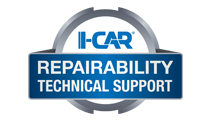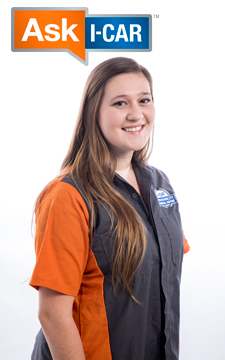OEM Restraints System Part Replacement Search
2019 Honda Odyssey
Share:
|
DISABLE PROCEDURE AND TIME (Always Check Service Manual)
1. Turn the vehicle to the OFF (LOCK) mode2. Disconnect the negative cable from the 12 volt battery
3. Wait at least 3 minutes before starting work
Before disconnecting the SRS unit connectors, always disconnect the appropriate SRS parts connectors.
REV: 09/2023
PARTS THAT MUST BE REPLACED FOLLOWING A DEPLOYMENT
After a collision where the driver's seat belt outer lap tensioner deployed, replace these items:• SRS unit [MODULE,AIRBAG CONTROL]
• Front seat belt(s)
• Front impact sensor(s) [AIRBAG SENSOR,FRONT]
After a collision where the front airbag(s) deployed, replace these items:
• SRS unit [MODULE,AIRBAG CONTROL]
• Deployed front airbag(s) [AIRBAG,STEERING WHEEL; AIRBAG,INSTRUMENT PNL]
• Front seat belt(s)
• Front impact sensor(s) [AIRBAG SENSOR,FRONT]
• Cable reel (deployed driver's airbag) [CLOCK SPRING]
• Dashboard (deployed front passenger's airbag)
• Front passenger's seat rail/front passenger's weight
sensors as an assembly
After a collision where the knee airbag(s) deployed, replace these items:
• SRS unit [MODULE,AIRBAG CONTROL]
• Deployed knee airbag(s) [AIRBAG,KNEE BOLSTER]
• Front seat belt(s)
• Front impact sensor(s) [AIRBAG SENSOR,FRONT]
• Driver's dashboard lower cover (deployed driver's knee
airbag)
•Glove box (deployed front passenger's knee airbag)
After a collision where the side airbag(s) deployed, replace these items:
• SRS unit [MODULE,AIRBAG CONTROL]
• Deployed side airbag(s) [AIRBAG,FRONT SEAT]
• Front seat belt(s)
• Side impact sensor(s) (first) [AIRBAG SENSOR,SIDE]
• Side impact sensor(s) (second) [AIRBAG SENSOR,SIDE]
• Side impact sensor(s) (third) [AIRBAG SENSOR,QTR PANEL]
• Rear safing sensor [AIRBAG SENSOR,INTERIOR]
• B-pillar lower trim
• Seat frame and related parts. Replace the seat-back cover/pad if it is damaged.
• Front passenger's seat rail/front passenger's weight sensors as an assembly
After a collision where the side curtain airbag deployed, replace the items for the side(s) that deployed:
• SRS unit [MODULE,AIRBAG CONTROL]
• Deployed side curtain airbag(s) [AIRBAG,ROOF]
• Front seat belt(s)
• Side impact sensor(s) (first) [AIRBAG SENSOR,SIDE]
• Side impact sensor(s) (second) [AIRBAG SENSOR,SIDE]
• Side impact sensor(s) (third) [AIRBAG SENSOR,QTR PANEL]
• Rear safing sensor [AIRBAG SENSOR,INTERIOR]
• A-pillar trim
• B-pillar upper trim
• C-pillar trim
• D-pillar trim
• All grab handles
• All related trim clips
• Sunvisor
• Headliner
PARTS THAT MUST BE INSPECTED AND REPLACED IF DAMAGED
• Do not repair damaged SRS wiring. Replace the affected wiring harness(es).• Before doing any SRS repairs after a collision, check the
deployed history and check for DTCs with the HDS to
determine the components that need replacement. (front seat belt tensioners, front impact sensors, side impact sensors, etc.).
• When replacing the front seat belt tensioner, check the seat belt mounting portion for deformation. If any deformation is found, repair it as needed
• After a vehicle collision, do the front passenger's weight sensor unit operation check.
• After a moderate to severe side or rear collision, inspect for any damage on the side curtain airbag or other related components. Replace the components as needed.
During the repair process, inspect these areas:
• Inspect all the SRS wire harnesses. Replace, do not repair, any damaged harnesses.
• Inspect the cable reel for heat damage. If there is any damage, replace the cable reel.
• Replace all damaged parts.
| Additional Information |
*This matrix does not currently contain all production vehicles sold in the United States. Please refer back to this page frequently to ensure the most up-to-date information. The following charts were developed in cooperation with AudaExplore, a Solera company. The contents are based on the information available at the time of publication. To ensure that the most recent information is used, always refer to the vehicle maker's technical information before working with airbags and other passive restraint systems.









